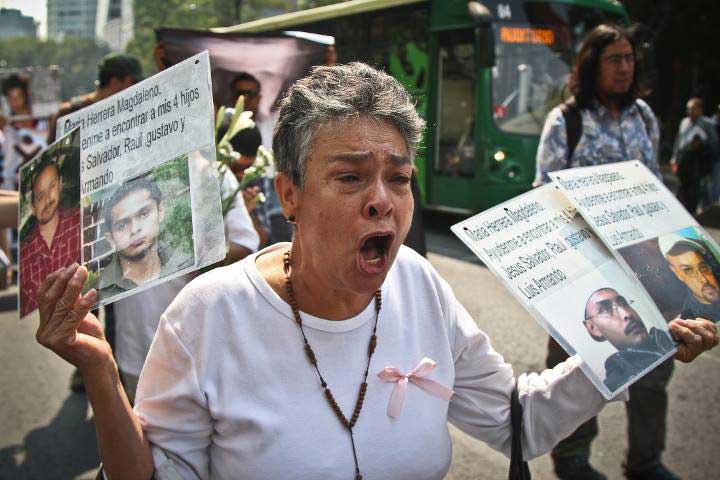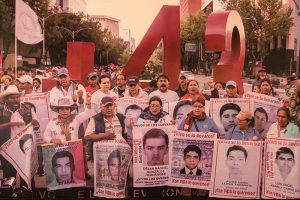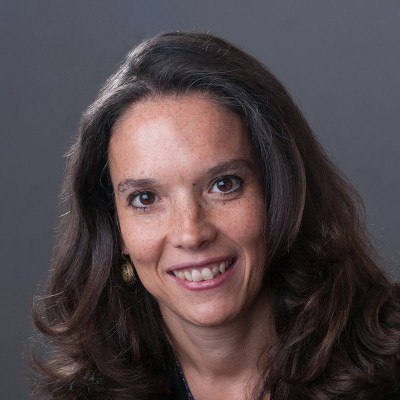On International Day of the Victims of Forced Disappearances, stories of loss and redemption from our grantees in Mexico
It’s been a decade since Maria Hererra’s sons disappeared. First, Jesús Salvador and Raúl. Then Gustavo and Luis Armando, who had gone looking for their missing brothers.
Maria may never know what happened to them. When I met her earlier this month, she spoke of her sons in the present tense—even though she, like so many mothers of the disappeared, is all but sure her children are dead. Some call the missing the “open wounds” of Mexico. Without the certainty of a body, many families find it impossible to mourn their loved ones.
And Maria’s family is far from alone: more than 33,000 people have disappeared in Mexico just in the past decade, as the country’s epidemic of gang violence has spread and the war on organized crime has ramped up. Cartels—often in collaboration with government officials, soldiers and police—operate with impunity, murdering rivals at will. But people outside the drug war also become targets. One mother told me her son, a nightclub owner, disappeared after he refused to pay an unofficial “tax” on his business to a cartel.

In many Mexican states, a sense of total lawlessness prevails. It can be dangerous merely to ask questions about the disappeared, let alone seek justice. But it’s a huge part of what must happen for Mexico’s unbelievable levels of violence to be overcome—and it’s exactly what our grantees are doing.
Digging for Answers
Today, Maria works with Families in Search, an AJWS grantee that organizes large groups of families to look for the disappeared—what many of the families call their tesoros, or “treasures.”
Maria founded the organization to empower other families of the disappeared in Veracruz. She also launched a national network of family collectives in 14 states, so they could better coordinate and share information.
AJWS is one of the only funders supporting family collectives in Mexico. The collectives aim to be far more thorough than the searches conducted by local government, which often don’t turn up any clues—due to lack of resources or lack of political will.
Volunteer family members first receive training on how to identify and properly unearth human remains. Some collectives hold community DNA drives, so they can use genetic information from family members to help identify any bodies they uncover. Then they gather in large numbers to search, using tips from former gang members or from local police or government officials.
“My son’s disappearance destroyed my fear. What my son went through? I have no right to be afraid.”
Sometimes, the families discover unmarked graves, many of which hold the remains of multiple bodies. For example, Trackers of El Fuerte, a family collective in Sinaloa, found 128 bodies in the last year. They helped successfully identify 105 of them.
It’s difficult work, often digging for hours in the desert sun. And it can be dangerous. Some family members have been threatened–or even killed–as they’ve searched for the truth.
For families like Maria’s, justice might never arrive. They’re struggling. A grandchild recently told Maria, “I want to join the gangs so they can tell me where my daddy is.” She wants to keep searching so her grandchildren might find peace—to keep asking questions, no matter how upsetting the answers might be.
When I was speaking to Lucy, another mother of the disappeared child, someone in our group asked, “How do you do this work? How are you not afraid all the time?”
“My son’s disappearance destroyed my fear,” she told us. “What my son went through? I have no right to be afraid.”
A Way Forward
Araceli Rodriguez’s son, Luis Angel, was a federal police officer in Mexico—until he vanished along with six other officers in 2009. They were last seen driving to a remote outpost in Michoacán, to help local police deal with escalating violence. They never arrived.
When Araceli went to the police station to ask questions, they refused to help her. She told me they threw her out of the building. Later, she received threatening letters in the mail.
But Araceli kept pushing for an investigation in every way she could—traveling around the country to talk with judges and politicians and calling international attention to her son’s disappearance.
Eventually, Araceli’s efforts led to some answers—and some justice. Detained cartel members reported that her son and his colleagues had been ambushed on the road and later killed. She told me the men involved in disappearing Luis Angel are now in prison.
But Araceli still needed to know exactly what had happened to him. “My life was so dark,” she told me. “I could barely live or breathe or eat.”
She went to interview one of the prisoners involved in her son’s murder. The young man started to talk—about the murders, but also about his mother. He’d taken a loan from the cartel to pay for her cancer treatment, and he hadn’t been able to pay it back. That was how he wound up working for a gang in the first place. He said his mother had died recently, while he was in prison.
Araceli said this was when she realized the prisoner was also a victim of the cycle of violence in Mexico—one that has caught up so many young men throughout the country, many of whom don’t have other options for paid work beyond the cartels. She felt a pang of empathy for him.
This cycle of violence has seethed for so long, it has sometimes seemed like it will never abate. But it has to. And after many years of advocating for human rights and calling for an end to the impunity and corruption that has allowed the cartels to thrive, AJWS’s partners in Mexico are reporting signs of progress.

Our grantee Tlachinollan led a landmark effort calling for a fair investigation of the disappearance of 43 college students in Iguala—one that brought unprecedented international attention to Mexico’s epidemic of violent impunity. While the results of the first investigation are still in question, the impact of the case has been seismic. As one reporter put it, “The sheer scale of the tragedy forced a public reckoning, if not a legal one, on the toll inflicted by the nation’s violence and broken rule of law.”
Now, Mexico’s incoming president has made it a top priority to tackle corruption and hold officials accountable for investigating and prosecuting violent crime. And in recent months, a new law took effect that aims to track down far more of the disappeared. It finally creates a national registry of the missing, and it should lead to increased resources for forensic investigations and the management of DNA information, which can be crucial to solving these cases.
And then there are mothers like Araceli. Today, she’s joined AJWS grantee Movement for Our Disappeared in Mexico, a national advocacy network of 35 family collectives raising their voices to call for an end to impunity and violence. Together, they succeeded in ensuring that the families will help oversee the rollout of the new law on the disappeared. Araceli often travels throughout the country and in the U.S., telling her story—hoping that one day it won’t be commonplace for people to go missing in Mexico.
To be clear, she considers it a story of redemption. Araceli told me that after speaking to that young man involved in her son’s death, something had started to change within her. She couldn’t exactly forgive the men who had taken her son away. But the rage that had plagued her for years began to lift. She stepped out of the prison and felt the warmth of the sun on her skin for the first time in years. She felt lighter, and a little more free—and she wanted to get to work.
AJWS’s work in countries and communities changes over time, responding to the evolving needs of partner organizations and the people they serve. To learn where AJWS is supporting activists and social justice movements today, please see Where We Work.

